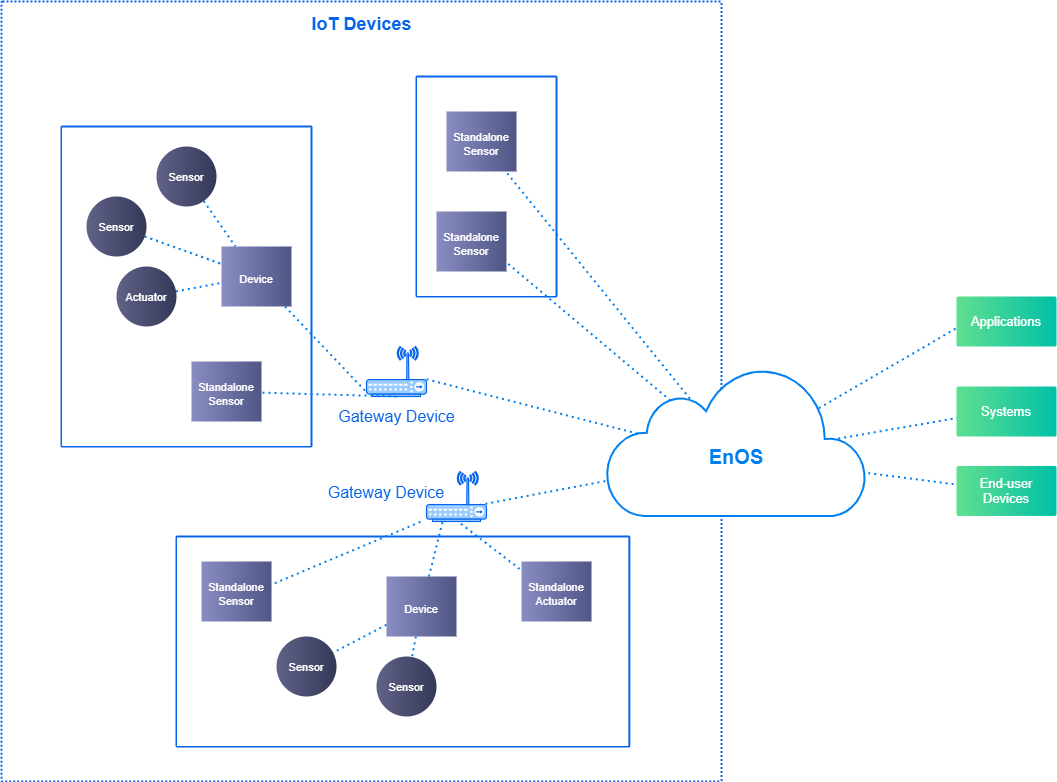Devices in EnOS™¶
The devices that EnOS manage in IoT Hub are massive and diverse. Yet what exactly constitutes to a device in EnOS?
In general, IoT devices are devices that connect to a network and can transmit data. They can communicate with each other without human intervention.

The IoT devices in the diagram above are examples of some of the more common IoT devices, as per the below. They can connect directly to EnOS or through gateway/edge devices for full device lifecycle management, transmitting data to be processed, stored, and output to end-user devices, applications, and systems.
Type |
Description |
Examples |
|---|---|---|
Device |
A device with one or multiple sensors or actuators, or a combination of both. |
|
Sensor |
Part of a device that observes/measures one or more events or properties, such as temperature, from the physical environment and converts it into data. |
|
Standalone Sensor |
A specific type of device with only one sensor that observes/measures one or more events or properties, such as temperature, from the physical environment and converts it into data. |
|
Actuator |
Part of a device that changes one or more events or properties, such as temperature, in the physical environment in response to received data. |
|
Standalone Actuator |
A specific type of device with only one actuator that changes one or more events or properties, such as temperature, in the physical environment in response to received data. |
|
Gateway Device |
A device which connects to multiple complex devices, or multiple standalone sensors/actuators, or a combination of both, that bridges the communication gap between IoT devices, systems, and the cloud. |
|
In EnOS, “device assets” are considered IoT endpoints, and are classified into two types: device and gateway. Devices, sensors, standalone sensors, actuators, standalone actuators, all fall under “device”, while gateway devices fall under “gateway”.